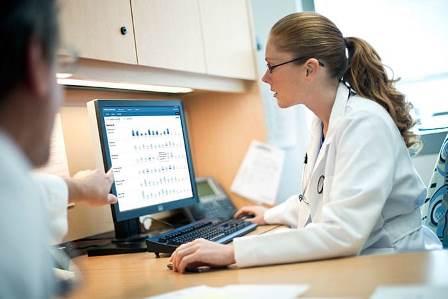
Philips IntelliSpace Epidemiology is the only decision-support solution in the U.S. that combines clinical informatics and genomic sequencing information from pathogenic bacteria, aiming to efficiently assist infection control prevention teams in identifying infection transmissions.
Healthcare associated infections are a critical threat to patient safety and health system costs, resulting in higher mortality rates each year than breast cancer and prostate cancer combined [1]. Approximately two million people get an infection during a hospital stay each year, costing the U.S. healthcare system about $35 billion [2].
Hospitals without automated technologies and a central repository of infection information can have a difficult time detecting infections in a timely manner, causing them to progress and spread.
IntelliSpace Epidemiology combines the areas that drive infection – such as patients, clinicians, locations or equipment – with clinical informatics and bacteria genomic information. The solution can display pertinent information in intuitive dashboards that fit into a clinician’s workflow to enhance clinical actionability.
This helps infection control prevention teams identify early outbreaks in the hospital so they can intervene and help to stop the spread, aiming to deliver improved patient and staff experiences, better health outcomes and lower costs of care.
“Solutions that can bring together information on healthcare associated infections from across a hospital are vitally important to identifying and stopping infection transmissions before they progress and become dangerous to patients and care teams,” said Felix Baader, Business Leader, Monitoring & Analytics at Philips.
“With IntelliSpace Epidemiology, we’re building on our leadership in clinical informatics and patient monitoring to support our overarching commitment to patient safety by piecing together all of this information to support the efficient identification of healthcare associated infections.”
Philips Epidemiology is a single, integrated system that combines clinical informatics, bio-informatics and genome sequencing information. Hosted on Philips HealthSuite, IntelliSpace Epidemiology will leverage deep learning and clinical analytics to genetically fingerprint pathogens and track infection transmissions quickly, as well as where they originated in the hospital.
Recent published studies show the effectiveness of implementing IntelliSpace Epidemiology and genomic sequencing in infection control. Presented at a major infectious disease conference in 2018, early results have shown an 87 percent reduction in time, when using IntelliSpace Epidemiology, to identify transmissions compared with traditional methods of detection [3]. Another study at an academic medical center looked at the routine use of genomic sequencing for infection control surveillance. Over a six-month period, 19 infection clusters were found using genomic sequencing. Of those 19, only one was detected using traditional techniques [4].
“Clearly, we need to improve our ability to detect the presence and transmission of bacteria in our hospitals, both resistant and nonresistant organisms,” said Dr. David Classen, MS, FACMI, CMIO, Pascal Metrics, a Patient Safety Organization (PSO), Professor of Medicine, University of Utah; and Consultant in Infectious Diseases and Clinical Epidemiology at The University of Utah School of Medicine.
“Traditionally we’ve had to rely on fairly gross indicators of this problem but that wouldn’t necessarily help us understand what kind of transmission is going on in the hospital. Now with whole genome sequencing, we can do this much more accurately and come to some important and quick conclusions that might have taken a much longer time in the past.”
Source: Company Press Release






